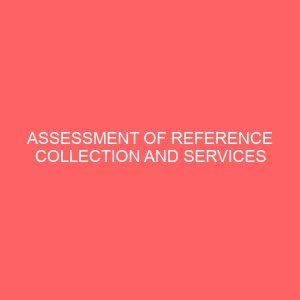Description
CHAPTER ONE
1.1 INTRODUCTION
This research focuses on why people buy people government bonds shares.
A bond is a long term debt instrument ,similar to an Iou .A bond is issued by a government [government bond ] to raise fund to finance a developmental project .it can also be issued by a company or an entry [corporate bond ] to finance a specific project. When you purchase a bond you are lending money to a government, a company or an entry know as an issuer in return for that money the issuer provide you with a bond in which it promises to pay for specified rate of interest during the life of the bond and to repay the face value of the bond [the principal ]when it matures ,or come due.
Bonds can be also called bills notes, debt security or debt obligation to simplify matters, we will refer to all these as ?bonds?
FEDERAL GOVERNMENT BOND (FGN) Federation government bond are debt securities (liability) of the federal government of Nigeria issued under the authority of the debt management office and listed on the debt management office and listed on the Nigeria stock Exchange. The federal government of Nigeria has an obligation to pay the bondholder the principle and the agreed interest as they fall due.
The Federal Government of Nigerian has been issuing the federal government of Nigerian bonds series since 2003. Trading of federal government of Nigerian bonds began in 2006 with the government appointment primary Dealers/Market Makers. FGN bonds currently have maturities ranging from two years to twenty years.
The interest earned on these bonds is called coupons and are paid semi-annually though they can be paid quarterly and annually. The minimum investment in FGN bonds at the auction is N10,000.00 per bond maturity.
FGN bonds trade in both the primary market and the secondary market. The primary market is where bonds are initially bided for at auctions organized by the DMO. This auction takes place on the third Wednesday of every month and investors interested in the primary auctions can only bid through PDMMS with the help of their stock brokers, bankers or even investment adviser.
The secondary market is for subsequent trading of the bonds. The market is liquid and with large volumes of bonds available. Investors still go through their stock brokers, bank, discount houses, investment manager or even CBN offices to participate.
All monetary transaction on bonds are done through the central securities, clearing system and settlement of transactions are done it is working days. All investors are required to have the account.
The benefits of investing in government bonds include the following. Among other, the investment is ?default risk-free? as repayment is guaranteed by the government interest received is tax-free relatively high returns and this can be up to 18% per annum. It can be used as collateral for loans and it is fully transferable and marketable on the floor of the NSE.
Economics Reasons why individuals entities local government, state government, foreign countries invest in shares of FGN bonds or other securities.
To create wealth or to create assets or to create or to create capital, economic theory states that INCOME (N13,000) is a flow of wealth whereas N120,000 is stock of wealth. Income earners can refuse to spend a portion of their income instead they can save it, they do not want their asset in the form of liquid cash.
Anybody who holds assets in other forms other than as liquid cash would earn an addition return. Hence, the investors get back the principal sum plus interest.
To supply loanable fund or idle funds to those who would make demand for them.
Hence the economic process of saving & investment is archived. The investing public or investors are the individual or entities who supply loanable fund to those who make demand for them. Examples are government stock sold by the Central Bank repayable with interest after 91 days; debenture sold by public limited liability companies repayable with fixed interest.
To avoid a reduction in the value of money held in hand as a result of macro-economic factors.
To take advantage of a ?bull market?
A period of steady rising price with people exporting those price increase to continue. These is high optimistic.
During economic boom, these is no intention by people to hold on to money, they are willing and capable of releasing money by convesting them to other assets such as shares and bonds. Logically with economic propensity price of bond will rise. Even with mild inflations, the lends gains and these is capital appreciation.
The stock-market has technical salesmen with the Job title of stock-brokes, Jobbes, Investment adviser who provide accurate information and make demand and provide accurate information and make demand and supply mechanism work smoothly for those buying and those selling with no price fluctuation preduction is based on fact and figures, yet these could be speculation but then it would be based on proper gives estimates not these hence. Participant in the stock-market do not have to be gambles.
To manage the problem of liquidity with the problem of lend?s risk. The length of time a lendes would past with his money would determine the interest he would earn on the principal sum.
1.2 STATEMENT OF PROBLEM
1. To identify the fundamental causes of the uncoordinated administration of the sale of FGN Bond until the DMO was established.
2. To find out the causes of poor management of the Public Debt.
3. To correct the problem of paucity of data and statistic on the total debts securities the FGN is involved in as a borrows.
4. And why is it in arrears in the payment of interest.
5. To find the root cause of the problem of poorly trained personnel in the Central Bank and other agencies in the management of FGN Bonds.
1.3 OBJECTIVES OF THE STUDY
The Debt Management Office (D.M.O) is a Public agency Created by an act of the National Assemble.
The Debt Management Establishment Act 2003 for the purpose of
? Maintenance and disseminating timely, reliable debt data .
? Ensuring affective and efficient management of Nigeria public debt port
folio.
? Assisting government in formulation and implementing sustainable debt
strategies.
? Advising on borrowing policies and assisting in the management of
government?s contingent.
? Tracking federal government loans to Sister African Countries.
1.4 SCOPES AND LIMITATION OF THE STUDY
The study will be confined to the Bonds Markets of Debts Management office (D.M.O), and would cover Bonds, shares, and capital Market.
The second Chapter will deal mainly on literature review revealing the reasons why people buy government bonds and shares with the meaning of bonds and shares.
The third chapter will state the method of data collection with reason for choosing the method. The fourth, as well as the fifth chapter deal with the interpretation of data collected and the summary of findings, conclusion and Recommendation of the study carried out respectively.
The study is mainly on why people buy government bonds & shares.
1.5 IMPORTANCE OF THE STUDY
1. To emphasize the need for the government to sell bonds
2. To achieve its fiscal policy and control inflation
3. To determine how successful the DMO has being as the agency for the
government in the sales of bonds
4. To determine whether the financial advice and the investment advice of the
DMO has resulted inefficient or profitable public debt port folio.
5. To determine whether the level of borrowing through debt securities is
sustainable.
6. To determine what has been the gain or the return enjoy by the FG from the collaboration between the central Bank and the DMO in the same of FGN bonds.
7. To show while sale of bond has been effective since the DMO and the CBN took over the operation
8. To show that Deficits budgeting can be managed through the sale of bonds
9. To indicate why sale of bond will provide revenue into the annual budget and enable FG to fund its long term project
10. To indicate how FG has extended its financial operation to the foreign market by selling bonds abroad
1.6 HISTORICAL BACKGROUND OF DEBT MANAGEMENT OFFICE (D.M.O)
The D.M.O was established on 4th October, 2000 to centrally. Coordinate the management of Nigerian?s debt. Which was hiertherto being done by a myriad of establishment in an uncoordinated fashion. This diffused debts management strategy lead to inefficiencies for instance, in the FMF alone; four different departments have functions for the management for the external debt in the following form.
Functions for the Management of external debt are;
1. External finance department: responsible for all paris club debt and for the management of public debt statistics
2. Multilateral Institution Departments responsible for relationship with all multilateral institution (excluding the African Development Bank and its subsidiaries such as AOF and NTF, which is handled by the ABER Department). It also responsible for managing and servicing multilateral debt.
3. Africa and Bilateral Economic Relations (ABER) Department responsible for liaising with the ABD and its subsidiaries. ECOWAS, and all non-paris club bilateral creditors.
In the CBN the following department had some involvement with
external debt management
1. Debt management department responsible for the London club debts consisting of trade debts, pas bonds, and Promissory Notes.
2. Debt conversion committee responsible for managing various debt conversion options such as debt for debt, debt-for-export, debt-furniture, and debt-for-development.
3. Various departments responsible for processing and effecting loan repayment on behalf of all the other agencies of department of government listed above.
This diffusion in the management of public debt created fundamental problems, including the operational inefficiency and poor coordination such as.
1. Inadequate debt data recording system and poor information flow across agencies with consequent inaccurate and incomplete debt records.
2. Inadequate manpower and poor incentive systems for the affected personnel, which affected output performance.
The consideration of these myriad problems of a relatively autonomous debt management office, which resulted in the formation of the DMO in October 2000. The need for the creation of a separate of a public debt management office was these fore Aimed at achieving the following advantages.
1. Achieving positive impact on overall macro economic management including the fiscal policies.
2. Projecting and promoting a good image of Nigeria as a discipline and organized nation capable of managing its assets and liabilities while.
Our chartes states our commitment t o our stakeholders and office our role, outlines our vision i.e. to manage Nigeria debt as an assets for growth, development and poverty reduction. Our mission i.e. To rely on well ?motivated professional work force and state-of-the-art technology to be among t he emerging markets Topton debt management offices, interest of best practice and contribution to national development by the year 2012. Our core value EXCITE in which E-Excellence, C-Commitment, I-Integrity, T-Teamwork, E-Efficiency then WHO we serve, our strategy 2008-2012. Our service deliver standards, performance target our expectation from those we serve, our grievance redress procedures, stokeholds participation finally the feedback which is the only way we can measure our performance in providing you with the services you need and make improvement where required.







